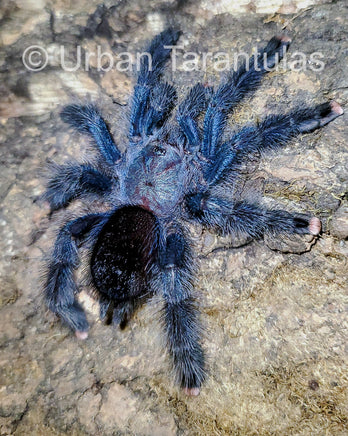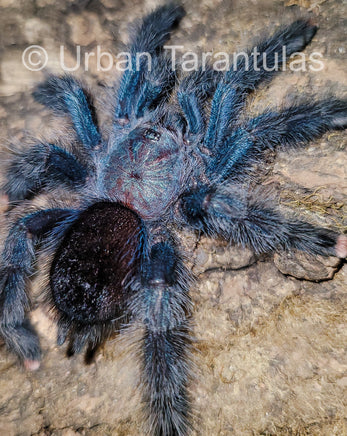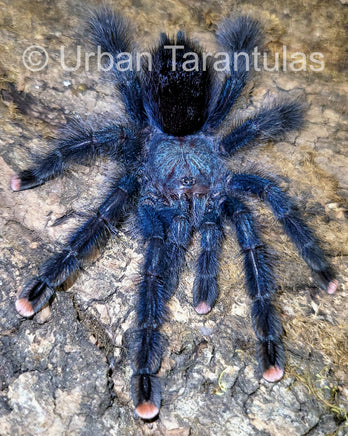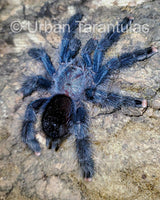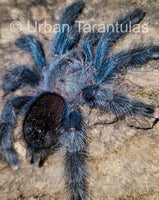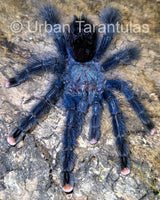Skip to product information
Avicularia geroldi – The Treetop Jewel Tarantula
Known as the Treetop Jewel, Avicularia geroldi is a calm and graceful arboreal beauty native to Brazil. Its metallic blue-green shimmer and velvety body make it one of the most elegant species in the Avicularia genus. This species thrives in well-ventilated enclosures with vertical climbing space and is a gentle, visually stunning tarantula ideal for keepers who appreciate vibrant color and easygoing behavior.
